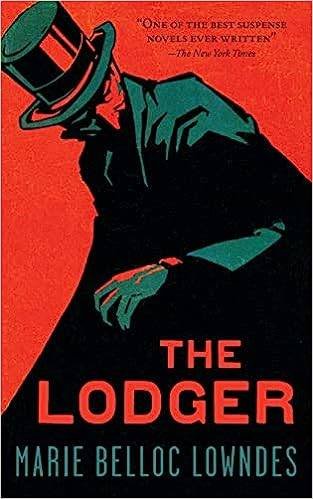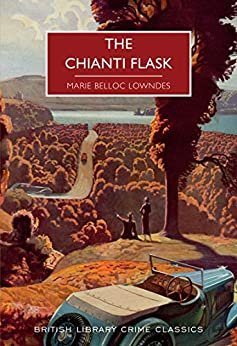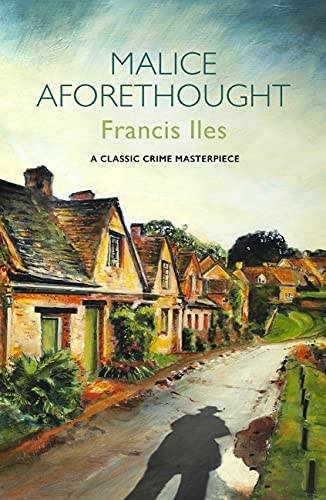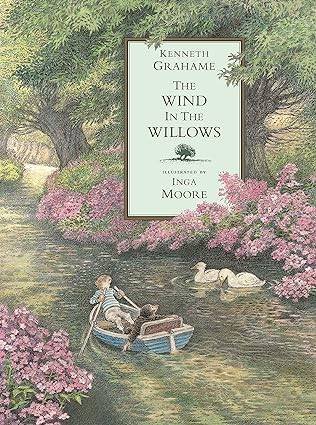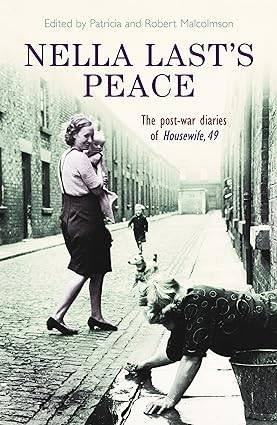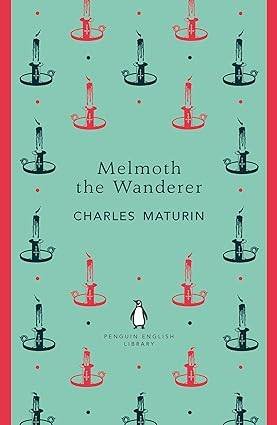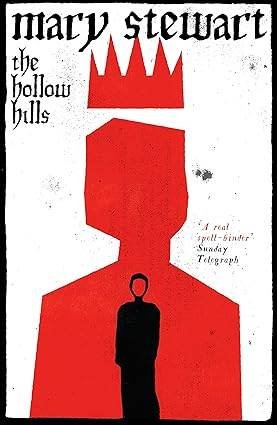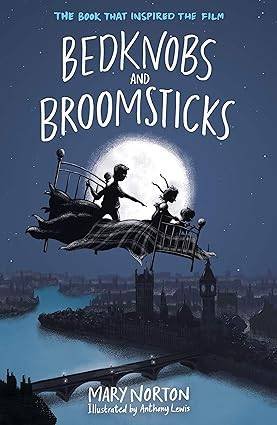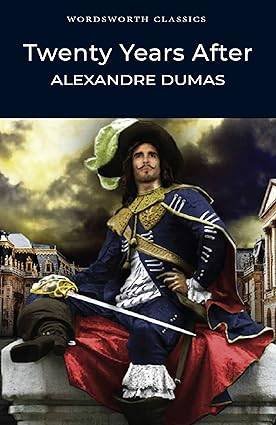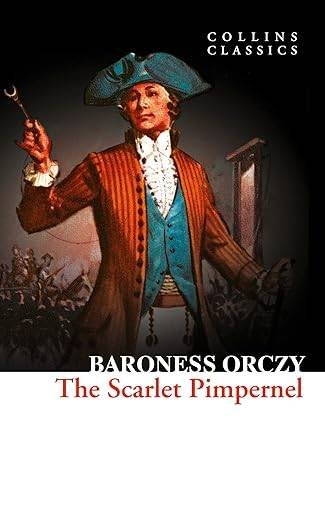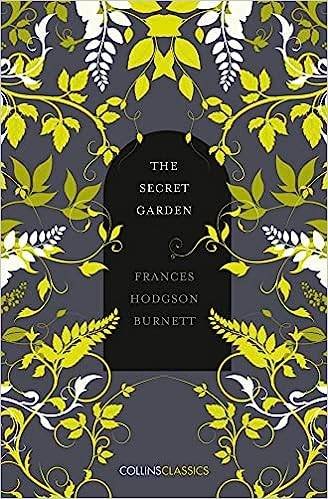Home » Book Reviews » Marie Belloc Lowndes » The Lodger by Marie Belloc Lowndes
Possible spoilers ahead
I’m excited to read this book, as it’s labelled as one of Sinclair Lewis’ four essential mystery stories (the other three stories being Bleak House by Charles Dickens, Malice Aforethought by Francis Iles, and The Nine Tailors by Dorothy L. Sayers) and I’ve been working my way through them all. I like this book from the very start, as the tension builds nicely.
The situation is detailed from the landlady’s, Mrs Bunting’s, point of view, with her growing suspicion of her new tenant, Mr Sleuth. The identity of the local killer, called ‘The Avenger’, and this being the lodger Sleuth, is given to the reader very early in the story, so we’re not really being led to guess ‘whodunnit’ (unless the big twist is going to be that Sleuth didn’t do it, although the only characters introduced are Mr & Mrs Bunting and Joe Chandler the detective, so that would be a good twist!).
It feels a very deliciously claustrophobic read because of the very small group of characters, even smaller than those listed above really as it is mainly just Mrs Bunting who deals with Sleuth and only her thoughts that the reader is privy to. It also feels quite claustrophobic as the scene doesn’t change much from the boarding house, with Mrs Bunting just venturing out on a couple of occasions. The reader isn’t taken to the scenes of the crimes at all, the information about the crimes is just brought to the reader, as it is to Mrs Bunting, by the newspaper or by Chandler’s report, as he is a friend of the Buntings’. It’s very cleverly done as it feels almost like we’re watching a play, with the stage the only view we have and this being only altered very slightly by the different rooms in the boarding house, there are no outdoor scenes. It’s very unusual and intriguing to read.
Mrs Bunting’s suspicions of Sleuth gradually grow, but she is very reluctant to acknowledge her suspicions even to herself, as she obviously wants to keep her tenant and the money he brings, with their money situation having been quite desperate until he came along as a tenant. Her only suspicions really so far are that he leaves the house late at night and has locked his bag in the cupboard and keeps the key of this cupboard himself, as well as his strange behaviour reading passages from the bible which are critical of women, and being teetotal and a vegetarian (tee hee, being vegetarian was clearly a suspicious behaviour in those days!) and by wanting to keep himself very private and not be disturbed. She can therefore partially convince herself that her suspicions about him are unfounded.
Not a great deal happens in the book really, and I feel it is quite unusual with the author resisting the urge to take us to the scenes of the crimes or to involve other characters. It’s mostly Mrs Bunting agonising over whether Sleuth is The Avenger or not, sometimes convincing herself he’s not then reluctantly trying to face the fact that he is, particularly when there is a ten day gap between murders which coincides with him not going out at night for those ten days. She is also agonising with her instinctive feeling to conceal his guilt from the police, she struggles with her conscience regarding this when she thinks of the victims, but she then can’t help blaming the victims for being drunk (it seems to have been a time when drinking for both men and women was heavily frowned upon), and again she is fearful of how they would survive without Sleuth’s board money. She also can’t help feeling pity for him whenever she is with him, as he seems a pathetic confused and frail vulnerable man. She tries to hold firm to her belief that he must have been a good peaceful man once, and could be so again if he can just get over this troubling period in his life, and she hopes that each murder is his last and he will then be satisfied and will stop. Interestingly, I think she’d perhaps feel less like defending him in her mind if he wasn’t a gentleman, as she was trained as a maid in fine houses so has been taught that this class of person must be respected and is naturally right and good, with the instinct of serving someone from such a class being ingrained in her, and I think this is also why she looks for excuses for him rather than thinking he is evil, I suspect she would feel and act differently if he was of a lower class and less politely spoken, or he drank and was rougher. It is also an interesting choice of the author to make him a frail pitiable gentleman, rather than an outwardly violent and rough person, as the typical murderer is in books.
Mr Bunting’s daughter, Daisy, is due to join them for a few days, and I could feel my apprehension that she may be at risk from Sleuth. Mrs Bunting goes to the inquest to try and gain a clearer description of ‘The Avenger’ from those who have claimed to see him, partly so she can be armed with the knowledge that the police have and she will therefore able to judge how close they may be to catching him, and I think partly still hoping the description will be wildly different to Sleuth’s appearance so she can convince herself that he is innocent. This is all beginning to tell on her health though, as she isn’t sleeping or eating with worry, and she is telling lies about Sleuth not going out and about her going to the inquest, which also adds to her unhappiness and guilty feelings as she doesn’t like to lie. She has kept her suspicions from her husband too, so doesn’t even have him to confide in and share her worries with, leaving her feeling even more isolated and subsequently making the story feel even more claustrophobic. It’s clever how it’s been done making the reader sympathise with Mrs Bunting, I feel I’m almost wanting the murderer to evade capture because I can see how it would devastate Mrs Bunting, whereas I probably wouldn’t feel sympathy for the murderer or want him to evade capture if the story was told from his point of view.
It’s also an interesting choice with it being Mrs Bunting rather than Mr Bunting who suspects Sleuth, though Mr Bunting does eventually suspect him but only when he is presented with physical evidence such as when he brushed up against Sleuth’s bloodied coat, but not by intuition as Mrs Bunting does. Is this the author demonstrating that women are perhaps more often guided by intuition, whereas men are more often guided by physical evidence? Is it also the author demonstrating that women are perhaps more likely to hesitate than men before taking action, they’re more likely to weigh up the consequences and try to see the bigger picture of what it would mean to them to lose his tenancy, to vacillate between whether he’s guilty or not, to doubt herself and her intuition and judgement, to torment her conscience, to be able to hope for good in him and that he will change his ways, and to be able to pity him? And perhaps Mrs Bunting acts as a contrast to the women that Sleuth is killing, that he has power over his women victims but Mrs Bunting as a woman actually has power over him as she could turn him in.
I do wonder what Sleuth’s experiments are, or is he just burning his bloodied clothes to get rid of evidence?
Sleuth suggests taking Mrs Bunting and Daisy to Madame Tussauds. Coincidentally, the Head of Scotland Yard is also at Madame Tussauds at the same time, and Sleuth and Mrs Bunting overhear him talking about ‘The Avenger’, which causes Sleuth to flee and he doesn’t go back to the lodgings again. Later his knife and his rubber-soled shoes are found abandoned on a park bench, and a donation of money is given to the Foundlings Hospital. I am presuming both of these actions are done by the Buntings.
Even at the end, Mrs Bunting takes comfort in telling herself that Sleuth wasn’t responsible for his crimes as he has been declared insane, and she feels pity for him and worries about him being out in the cold, which is very different to Mr Bunting’s view of him.
It’s a wonderfully fascinating book, extremely clever and really memorable, I was very impressed with it. It is so unusual with the different approach it takes to the usual murder mystery. It’s very interesting that she wrote the book not from the aspect of the murderer or his victims, but from the aspect of the people he lived with and the effect his presence had on them. It’s quite a restrained approach, and makes it more of a psychological story than a horror story, though there is tension and foreboding in the book. The book is as much about the torn feelings and dilemma of Mrs Bunting as it is about the murderer. It also works well having her suffer alone with her apprehensions and fears, rather than having her share these with her husband, and her being riddled with doubts about how to act and her guilt about not acting being intensified by her not being able to share these feelings and worries, and the feelings then becoming magnified in her mind, consuming her and making her ill.
It’s also interesting that Mrs Bunting shares similar views to Sleuth in disapproving of alcohol consumption, particularly in women, she seems similarly as stern as he is in her views of acceptable and unacceptable behaviours and in making judgements on people for their behaviour. And it’s also interesting how Sleuth’s self-enforced restrictions and repressions are hinted at being a cause of his criminality, such as him not eating meat and not drinking alcohol and avidly reading the bible, all of these things could be said to be self-care nowadays but seem to have in this case been thought to contribute to him turning into someone unnatural.
I read that the book is supposedly based on Jack the Ripper. The book is vague about Sleuth’s victims though, it is just implied that they are the worse for drink when Sleuth kills them and this is the reason for him killing them as he disapproves of women drinking, but are they actually prostitutes like Jack the Ripper’s victims, is this just the coyness of the time that prevents the author making this clear?
The book did leave me with a few questions, such as why Sleuth suggested going to Madame Tussauds with Mrs Bunting and Daisy. This seemed an unusually sociable thing for him to do. Was it to spend time with Daisy in order to judge if she was suitable for killing, perhaps? And it was also a huge coincidence that the Head of Scotland Yard was also in the same section of Madame Tussauds and talking about The Avenger at the same time that Sleuth and Mrs Bunting were there, which Sleuth then overhears and this causes him to flee. It feels a little like this was perhaps the only way the author could bring Sleuth into contact with the police and therefore bring about his escape and end the book. The whole scene just felt a little contrived and false in comparison to the rest of the book, which disappointed me slightly.
I also wondered what Sleuth was avenging, as he named himself ‘The Avenger’, we are given no hint of why he chose this name, I guess because we never get to know him. The only thoughts we hear from him are at the end when he thinks about committing suicide and voices his anger towards Mrs Bunting and the Head of Police. I remember he turned the pictures of women in his room towards the wall and quoted passages from the bible which criticised women, and he was thought by the police to be a woman-hater and a religious maniac, but was it the independence and confidence of women he was putting down, so therefore the rights of men that he was avenging?
And there is no conclusion of what happens to Sleuth, and if he goes on to kill again. Presumably so, as the Head of Scotland Yard implied he had done this before as he had killed two people in Leipsic and four people in Liverpool and was then arrested and placed in a lunatic asylum, and in his final whispered angry words to Mrs Bunting he says ‘I still have much to do’ implying he will continue with his crimes. He did seem to briefly contemplate committing suicide as he exited the museum but he thrust this ‘temptation’ from him because he had ‘great avenging work’ to do.
It was a really good read, very very interestingly and cleverly done, quite different to how I thought it would be, being more psychological than a whodunnit. I’d be interested to read more of hers. She seems to have been quite a prolific writer so there are a good few to choose from, The End of Her Honeymoon and The Lonely House both sound quite interesting so could be good ones to try, I’ve already read The Chianti Flask (which is another British Library Crime Classic so gets a big tick from me as I love their books!) and very much enjoyed that one. And obviously I am continuing to read the other three books recommended by Sinclair Lewis as the essential mystery stories to read, Bleak House, Malice Aforethought, and The Nine Tailors.
